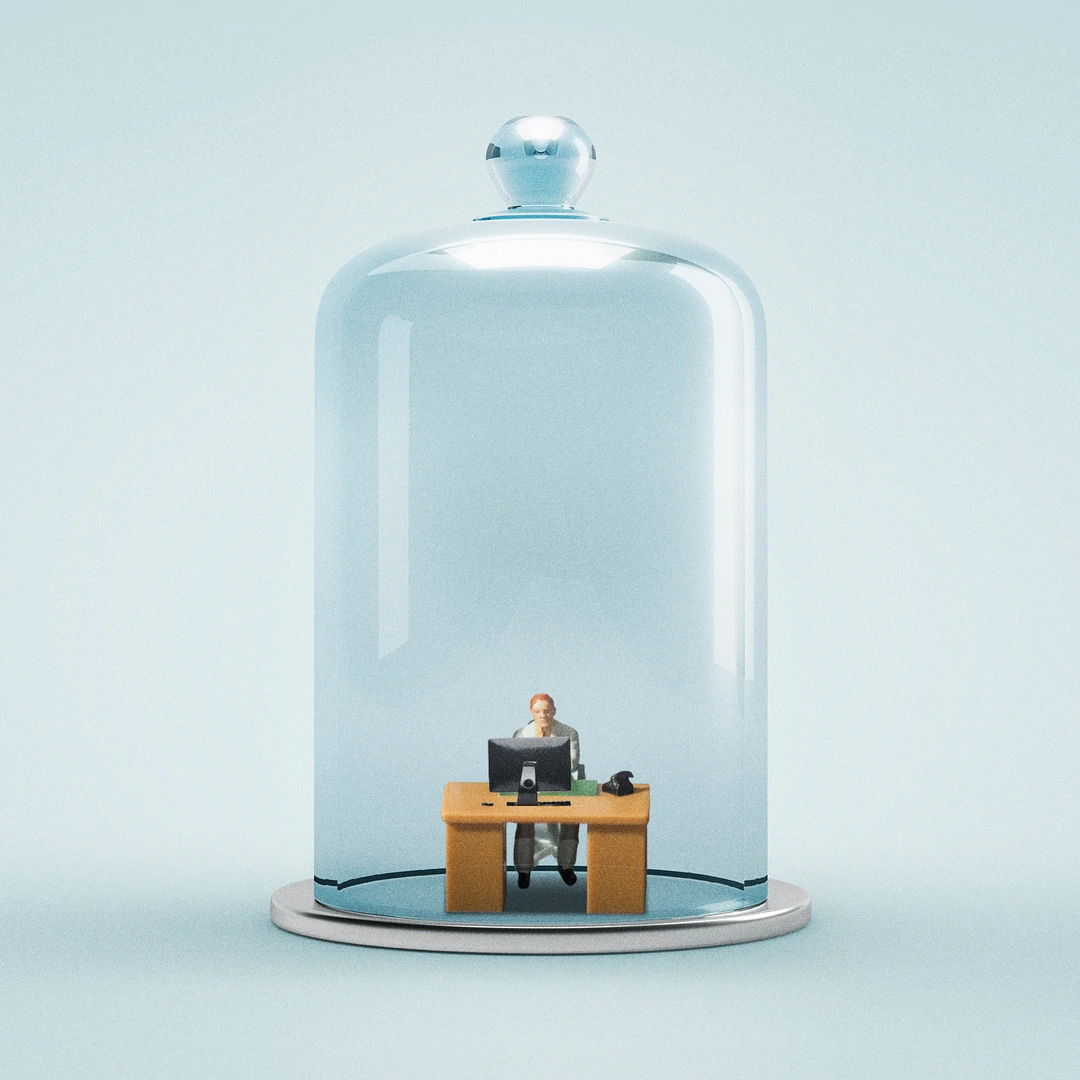By Keren Landman
Copyright theatlantic

Since Robert F. Kennedy Jr. pushed out the CDC’s director and three other senior officials resigned in protest, public-health experts—including a former CDC director, a renowned vaccine expert, and at least one departing official—have broadcast an unprecedented loss of faith in the agency. The public, they say, should no longer trust the advice the CDC gives.
That message has put CDC staffers left behind in an awkward position. Nine current and former employees told me they appreciated the need to sound the alarm about Kennedy tampering with the agency’s vaccine-evaluation machinery. But a blanket warning about the CDC implicates more than the agency’s vaccine recommendations; it casts doubt on the ongoing work of the rank and file across the agency.
The reality of what’s unfolding inside the CDC is more complicated than widespread meddling, according to the employees I spoke with. And that makes navigating the information coming out of the agency even more of a challenge for everyone on the outside.
So far, “it’s where data meets vaccine policy that this administration is causing the biggest reputational damage,” Fiona Havers, a vaccine-policy expert who led the CDC’s studies of COVID and RSV hospitalizations before resigning from the agency in June, told me. Earlier this year, Kennedy fired all 17 members of the agency’s Advisory Committee for Immunization Practices and replaced them with his own handpicked alternatives, many of whom have long histories of spreading vaccine misinformation. Havers told me that HHS personnel outside the CDC have also started reviewing some agency materials before they’re published; this process has led to changes to scientists’ language involving vaccinations and treatments for measles and RSV, Havers said.
I asked HHS to comment on whether the review policy for such materials has changed, but the department’s communications director, Andrew Nixon, declined to answer that question. “Secretary Kennedy has been clear: the CDC has been broken for a long time,” Nixon wrote in an email. “Restoring it as the world’s most trusted guardian of public health will take sustained reform and more personnel changes.”
The administration has interfered with work in other politically sensitive fields. Earlier this year, when President Donald Trump issued executive orders refuting the existence of gender and disavowing diversity, equity, and inclusion, CDC staff withdrew papers submitted to journals and removed and edited data on certain populations from select data sets. They also changed protocols for research involving these populations, current and former employees told me. (A number of workers I spoke with for this story asked to remain anonymous due to fear of professional retaliation.)
When it comes to publicly accessible material, the CDC’s website may be particularly prone to including misleading information, because on any of the site’s pages with no named authors, “there’s no way to verify that that came directly from a scientist and wasn’t tampered with,” a current employee who has worked in noninfectious-disease epidemiology at the CDC for about a decade told me. That said, most pre-2025 guidance documents on the CDC’s website are likely reliable, as is newer guidance on less politicized topics (for example, the Yellow Book website that provides information about travel medicine), a subject-matter expert who staffs one of the agency’s many disease-specific hotlines told me.
The bulk of the data removed and edited earlier this year will be restored following a legal settlement this month. Jennifer Layden, who led data-modernization efforts as director of the agency’s Office of Public Health Data, Surveillance, and Technology before resigning in August, told me that the agency’s data sets otherwise remained largely unaltered. “We are working extremely hard to protect the data,” a senior official still at the agency told me. Other significant parts of the CDC’s work are basically fine, according to current and former employees I spoke with. Much of it is invisible to the general public, which may help keep it safe from political interference. For example, since January, disease experts scattered throughout the agency have answered more than 1,500 calls from providers caring for patients with malaria, parasitic diseases, free-living amoebas, diphtheria, and botulism, according to numbers from the CDC. The agency’s epidemiologists also continue to assist state, local, and tribal health departments when they’re faced with particularly challenging outbreaks, such as the rabies infections that have turned up in unusually high numbers this year. (This past winter’s measles outbreak was arguably an exception: CDC researchers didn’t arrive in Lubbock, Texas, until a child had already died in nearby Seminole.) The subject-matter expert I spoke with, who takes calls from clinicians and health departments nationwide, told me that their work had not been interfered with, perhaps in part because the infections they advise on are so rare.
CDC scientists often write technical articles for publication both in the agency’s own journals and in external peer-reviewed journals. Submission numbers, at least to the agency’s journals, have been down in recent months: Fewer scientists are available to write the articles due to staff scarcity in the wake of layoffs, and some research is newly off-limits under Trump’s executive orders. Still, several epidemiologists told me that agency scientists’ published work about subjects other than vaccine-preventable disease—on overdoses and vector-borne diseases, for example—remains their own. I heard several times that an awful lot of people at the CDC would quit before they’d put their name on scientific material that they’d been forced to fabricate.
Across the board, however, departments are under strain as the administration strips away the CDC’s resources. Since Trump withdrew the U.S. from the World Health Organization in January, the CDC’s global-health experts have been largely unable to receive the timeliest information about disease trends worldwide, and they’ve been prevented from collaborating on infections and conditions that easily traverse borders, according to several global-health epidemiologists still employed by the CDC. “We look like idiots,” an epidemiologist in the agency’s Global Health Center told me. Early in the year, the Trump administration, guided by Elon Musk and his team at the Department of Government Efficiency, clawed back $11 billion in funding from the CDC and took a chain saw to its staffing. A recent analysis of HHS worker departures by ProPublica found that anywhere from 4 to 20 percent of staff across several CDC centers and offices was forced out as part of a so-called reduction in force, or RIF. According to ProPublica, the real losses are likely much higher, as the analysis does not include the more than 1,100 workers who have received layoff notices but remain on administrative leave.
Workers have so far been able to cover for absent colleagues and funding, but that could change if months turn into years, or if the agency’s budget is cut as much as proposed 2026 budgets suggest it will be. After about a third of Layden’s staff was laid off, she told me, she felt she couldn’t be effective in her role. Workers left behind in these scenarios “can still provide the guidance and the direction and support” to the health departments and other partners they serve, but “they may not have enough bandwidth to do it as well, or help as many states,” she said.
Kennedy seems poised to bend the CDC further to his will. In a recent Wall Street Journal op-ed, he wrote that the agency has “squandered public trust” and allowed its core purpose to be “corroded” (and that his leadership will restore the CDC’s reputation). Two days later, in a hearing before the Senate Finance Committee, he said the CDC needed to be purged of “officials with conflicts of interest and catastrophically bad judgment and political agendas.” The CDC’s new acting director is Jim O’Neill, Kennedy’s deputy at HHS, who has no medical or scientific training and a history of spreading COVID-related misinformation and conspiracy theories. (In an emailed statement, the HHS spokesperson Gregory Angelo cited O’Neill’s previous tenure at HHS during the aughts, and described him as “a proven leader with a deep understanding of HHS and its many divisions.”) Kennedy has not yet given any indication of who might be tapped to replace the director he ousted. “If the administration appoints an ideologically driven leader, we’re at higher risk for political interference in other areas of CDC,” the Global Health Center epidemiologist told me.
In making broad statements about the CDC’s credibility, public-health experts—who overwhelmingly oppose Kennedy’s anti-vaccine agenda—risk playing into his hands. “I absolutely understand why they are saying what they are saying,” the noninfectious-disease epidemiologist said about the CDC’s current critics. “My fear is that we’re going to throw the baby out with the bathwater.” No other entity gathers nationwide data on health trends like CDC does; before this year, it was unparalleled as a reservoir of public-health expertise. If clinicians and public-health officials don’t trust that they’ll get good advice when they call for help with unusual cases, the risk that small outbreaks will become big ones, and that more people will die, rises. If researchers lose faith in the agency’s data on health trends, or if the general public doesn’t believe what’s published on the CDC website, people have few other options to turn to for reliable, centralized information on crucial health matters.
The continuing exodus from the CDC also poses a numbers problem. Multiple employees I spoke with said that, for now, if nobody has noisily quit the agency over something it’s made or done, that product is likely trustworthy. “I don’t think at this point we’re going to tolerate pressure in silence,” a medical epidemiologist who has been at the CDC for a decade told me. But what happens when everyone who can noisily quit already has? The agency might exist in name, but its reputation may be ruined for good.



